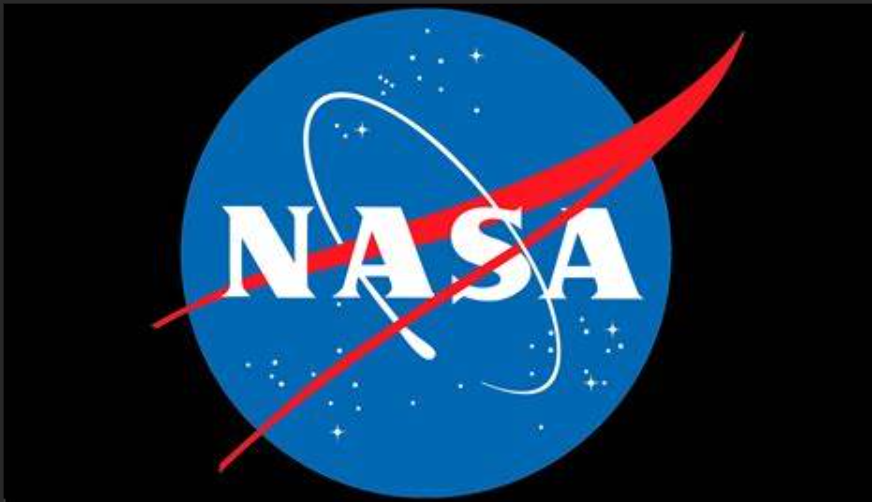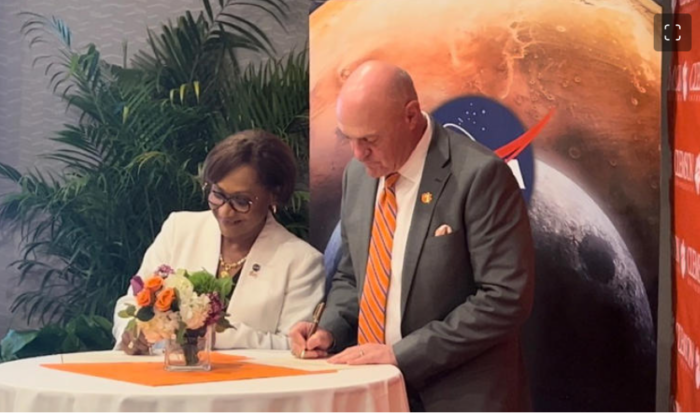In a world grappling with the mounting consequences of climate change, Josef Aschbacher, the visionary director general of the European Space Agency (ESA) and a preeminent authority on environmental observation, is resolute in his call for unwavering commitment to tackle this global crisis. As record-breaking heatwaves and devastating wildfires wreak havoc across Europe, Aschbacher’s voice rings out with urgency, imploring political leaders not to relinquish European leadership in the fight against climate change.
Unveiling the Visible Impact
“It is clear that climate change is very visible and is really causing enormous changes to our planet,” said Aschbacher during an exclusive interview with Reuters.
He highlighted the alarming scenes unfolding in Greece, Italy, Spain, and Portugal, where unprecedented temperatures and wildfires have become all too common this summer.
The World Meteorological Organization’s declaration of July as the hottest month ever recorded underscores the gravity of the situation.
“This is really alarming,” said Aschbacher, reinforcing the consensus among climate experts that climate change poses the gravest threat to our planet and humanity for the foreseeable future. “We do need to do everything we can to mitigate the effects.”
Aschbacher, who ascended to the helm of the 22-nation European Space Agency in 2021, had previously spearheaded ESA’s landmark Earth observation satellite projects, including the pioneering Copernicus program, renowned as the world’s largest environmental monitoring initiative based in Paris.
Copernicus Unveils Devastation
In a powerful display of Copernicus’ capabilities, ESA recently unveiled an image captured by the program, revealing the aftermath of a fierce wildfire that engulfed vast swathes of forest in southern Portugal. The blaze, since brought under control, serves as a stark reminder that climate change is driving the intensification of heatwaves, rendering them more frequent and extending their reach across different seasons.
While scientists and environmentalists urge immediate action, the political arena remains fraught with debates over the financial implications of net-zero commitments. As Europe braces for forthcoming elections, concerns have arisen about potential setbacks in the implementation of crucial climate measures.
In the context of the United Kingdom, where elections loom within the next year and a half, Prime Minister Rishi Sunak has raised concerns about the perceived burdens and costs associated with climate policies. Aschbacher, however, stresses the imperative of addressing the undeniable evidence, including satellite data, that underscores the urgency of the heatwave emergency in southern Europe.
“Acting now is much cheaper than waiting for years and then patching up the damage that has been caused,” warned Aschbacher.
His words resonate with a sense of urgency, as he underscores the importance of heeding the alarm bells and decisively acting to safeguard our planet.
No Singling Out
Aschbacher refrains from singling out specific politicians or states, but his message is unambiguous: climate change necessitates immediate and resolute action.
“So yes, the alarm bells should still be ringing very loud. And it is certainly concerning if the signals are not heard in politics as they should be heard, in order to really save our planet,” he said.
In the backdrop of this pivotal moment, Aschbacher’s insights assume an even greater significance, especially as he occupies a distinguished position among the most senior climate-monitoring officials advocating for unwavering support for climate change mitigation measures. As some climate activists raise concerns about a “greenlash,” he stands as a steadfast advocate for bolstering efforts to combat climate change.
ESA’s Copernicus program, a groundbreaking initiative, relies on an array of Sentinel satellites meticulously designed to monitor the Earth’s essential indicators, spanning from carbon dioxide levels to ocean temperatures and wave heights. The program, a testament to European ingenuity and collaborative prowess, paints a comprehensive picture of our planet’s health and the pressing challenges it faces.
Funding Gap
However, despite its resounding success, the program faces a funding gap of €721 million (US $787.84 million), primarily attributed to the UK’s partial withdrawal from the European Union. Negotiations between Britain and the European Commission are ongoing to determine the extent of Britain’s future contributions to Copernicus.
Aschbacher emphasizes the need for a funding decision by June 2024 to ensure the seamless development of the next generation of Sentinel satellites. The consequences of missing this critical deadline would reverberate far beyond mere financial implications.
“The impact would be very significant because the Sentinels are required in order to provide a number of critical climate parameters. This would significantly impact Europe’s commitment to combating climate change,” said Aschbacher.
In his unwavering commitment to preserving Europe’s leadership in combating climate change, Aschbacher leaves no room for doubt. With his profound insights and resolute advocacy, he exemplifies the spirit of scientific exploration and innovation that must drive humanity’s collective efforts to safeguard our planet for future generations.
SOURCE: Reuters
Featured image: ESA Director General Josef Aschbacher. Credit: ESA – Philippe Sebirot
Share this article:








